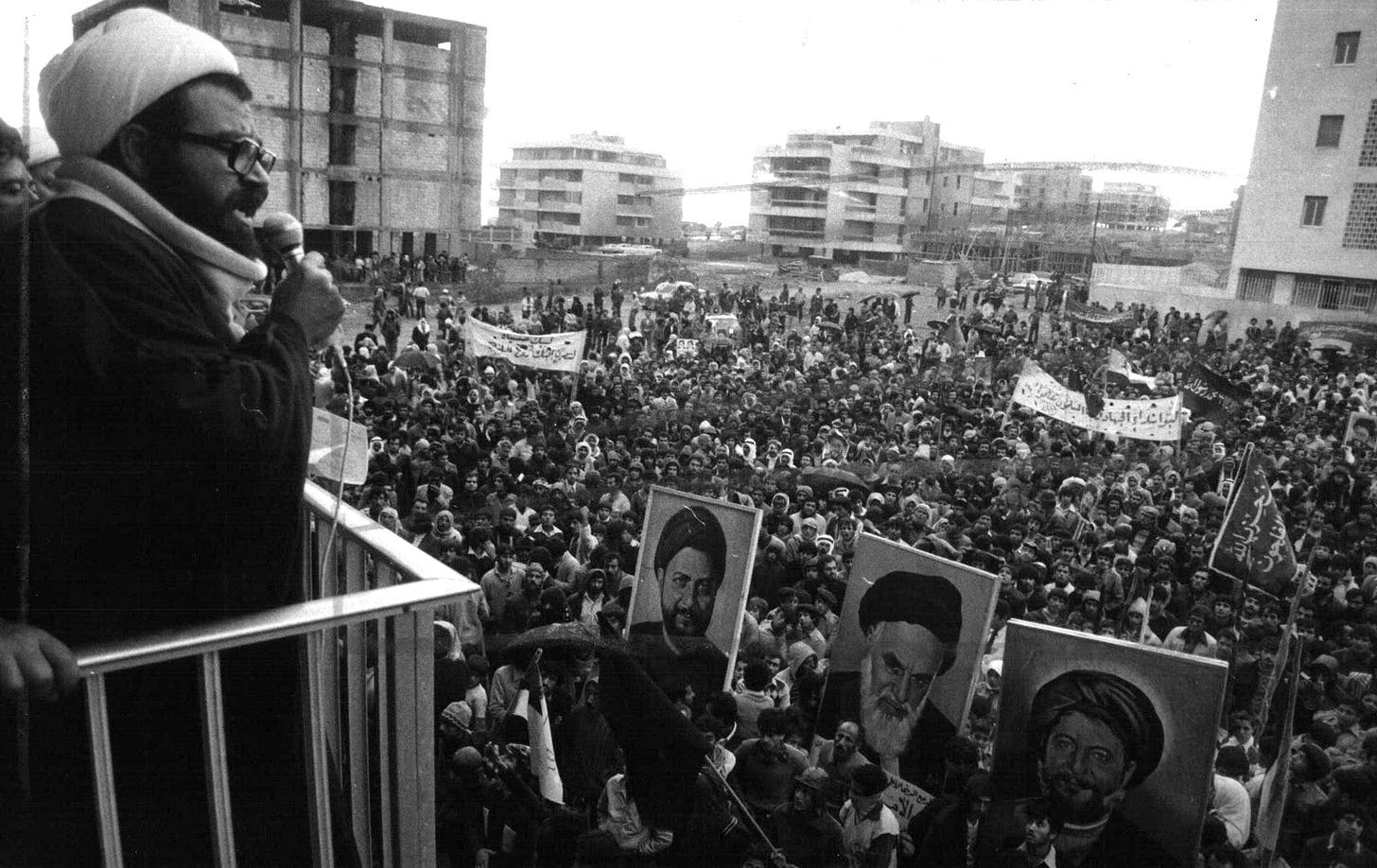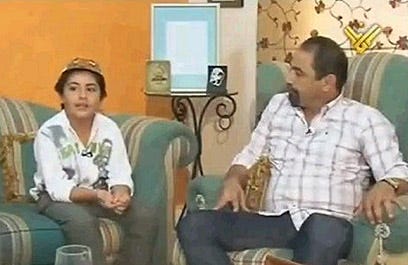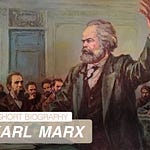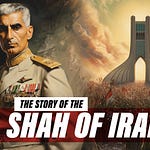Following the 1982 Israeli invasion of Lebanon, an amalgamation of various Shia groups formed as a force of resistance against the Israelis in Lebanon – this force would become known as Hezbollah (or Party of Allah) by 1985 with Sheikh Subhi Tufaili as its first Secretary-General. This political party and militant group would become a major socio-politcial-military force in the middle east, being designated a terrorist organisation by the European Union and most members of the Arab League. It is now a multifaceted entity spanning many categories such as a political party, social welfare umbrella organisation, army, and transnational terrorist organisation.
See also:
A Short History of Hamas
The formation of Hamas, its long and complicated history within Palestine and with Israel is briefly covered in this overview video. We could not hope to cover every detail of Hamas in this short video, but the intention is to give an overview.
Between 1943 through to the formation of Hezbollah in the mid 1980s, the Lebanese Shiite community underwent a long radicalization process through many leftist organisations in the struggle for reformation of Lebanon from sectarianism. The Lebanese Shia community had been poor and marginalized by a ruling Sunni Muslim and Christian population. The Shiites, in the spirit of revolt, became very active in groups such as the Arab Nationalist Movement, the Ba’ath Party, the Lebanese Communist Party, the Syrian Socialist Nationalist Party, and the Progressive Socialist Party, along with Palestinian factions in Lebanon, which all represented the Shiite struggle against the capitalism, feudalism, and pro-Western forces at play in the region. Other socialist and communist parties were formed during this period, unsurprisingly led by Marxist-Leninist intellectuals and characterised as movements for the oppressed, deprived and disinherited.
The Iranian Revolution of 1979 was also revolutionary for the Shias in Lebanon. The new theocratic government of Ayatollah Ruhollah Khomeini, a religious cleric who had headed one of the rebel factions to overthrow the Imperial State of Iran, became the ideological centre for Shias inside and outside Iran. The future Hezbollah would be primarily funded and supplied by Iran.
On the 6th of June, 1982, the Israeli government initiation Operation Peace for Galilee, which was an Israeli Defence Force invasion of southern Lebanon to neutralize PLO forces who had been entrenched in the region for years. Shia residents of south Lebanon bore the brunt of the invasion, and consequently the war became catalytic in enlisting thousands of Shiites into Hezbollah, including Shiite clergy. This recruitment and training program was with significant help from the Iranian “Islamic Revolutionary Guard Corps”.
At this time Subhi al-Tufayli, a Lebanese Shia cleric, politician, publicly announced the formation of Hezbollah in 1985, and became its first Secretary-General from 1989 to 1991. After the death of Khomeini in 1989 there was increasing Iranian control over Hezbollah and al-Tufayli became a vocal critic of Iran and certain factions within Hezbollah. He and his followers were expelled from the organisation in 1998. He has since been a fierce opponent of Hezbollah and Iran.
The emerging Hezbollah was armed and funded by Iranian clerics, most notably Ali Akbar Mohtashamipur, who is also credited as a founder of the movement. While ambassador to Syria, Mohtashami merged radical Shiite movements into Hezbollah as part of a broader Islamic revolution strategy. By 1986–1987, Hezbollah had become the main politico-military force among the Shia community in Lebanon, effectively controlling all of Dahieh and the Beqaa Valley, and boasted an armed force of 25,000.
The primary mandate for Hezbollah was expelling Israeli and Western forces from Lebanon. In the years from 1984 to 1991, there were 3425 military operations against Israeli forces and the South Lebanon Army, the majority conducted by Hezbollah. Among the tactics used by Hezbollah, suicide attacks became the most notorious, as well as inspiring other militant extremist groups to adopt the practice. Although Hezbollah seems to have not directly participated in suicide bombings since 1999.
Hezbollah has maintained somewhat of an international reach, although has denied many of the claims of kidnapping Westerners within Lebanon, bombing US and other foreign interests in Beirut, hijacking airliners, carrying out operations as far afield as Argentina and Latin America. The litany of terrorism, money laundering and drug trading allegations from Western sources places Hezbollah a serious security concern for the West.
To take one example: On October 23, 1983, there were two deadly bombings in Beirut at facilities of the Multinational Force in Lebanon (a military peacekeeping force during the Lebanese Civil War). This attack killed 307 people, including 241 US, and 58 French military personnel. The group Islamic Jihad claimed responsibility for the attack and although Hezbollah denies any involvement in the bombings there is good reason to believe Islamic Jihad was a Syrian-Iranian backed Hezbollah proxy. For the next 30 years Hezbollah would be blamed for many bombings and attacks against civilians and diplomats undertaken by closely associated or proxy groups. No doubt the clandestine nature of such operations is to protect Hezbollah’s legitimacy as a political and social justice entity in Lebanon.
As a military force, Hezbollah has played a role in many middle eastern conflicts, such as the South Lebanon conflict, the 2006 Israeli-Hezbollah war, the 2008 Lebanon conflict, the Syrian civil war, and many other smaller skirmishes in the region. Hezbollah has asserted its military strength directly and through the sponsorship of lesser-known militant groups such as the Organization of the Oppressed, the Revolutionary Justice Organization, the Organization of Right Against Wrong, and Followers of the Prophet Muhammad.
Although the exact strength of Hezbollah armed forces is difficult to gauge, it could have up to 65 thousand fighters (both full-time and reservists), a huge arsenal of rockets, drones, anti-aircraft systems, electronic counterintelligence, in what has been described as a military power greater than that of the Lebanese Army. Equipment and training has come from sources such as Iran, North Korea, and Syria.
Hezbollah is also a major political party in Lebanon representing the Shiite population and runs extensive social service programs in the country. Hezbollah’s political support is broad, being described as “the most powerful single political movement in Lebanon”. The "Loyalty to the Resistance Bloc" is the political wing of Hezbollah in the Lebanese parliament and holds a significant number of seats.
Hezbollah’s social programs include hospitals, news services, education, and various economic and infrastructure development projects. They offer cheap medical care (which is free for Hezbollah members), farming assistance and training, environmental and social assistance programs, garbage collection and compensation programs for families who have lost soldiers in battle. They even run amusements parks.
Their media operations offer satellite television and radio programs, much of which is propaganda and what they state is “psychological warfare against the Zionist enemy”. Programming aims at instilling Islamic nationalism, especially in children – in 2012 the Israeli news outlet Y-net-news reported about an 8 year-old in Sidon who had donated money to Hezbollah to help purchase a new drone. The boy stated on the Hezbollah-run media outlet that “When I grow up, I will be a communist resistance warrior with Hezbollah, fighting the United States and Israel, I will tear them to pieces and drive them out of Lebanon, the Golan and Palestine, with I love very dearly.” Hezbollah is undoubtedly deeply embedded in Lebanese society, has enormous influence over both young and old, especially the Shiite Muslim population.
Since the Hamas attack on Israel on the 7th of October 2023, Hezbollah has countered Israeli artillery and drone attacks into southern Lebanon. Hezbollah continues to launch rocket attacks at IDF forces as Israel attempts to secure their northern border by bombarding militants in southern Lebanon. Various parties within the Lebanese parliament condemn the use of Lebanese territory by non-state actors like Hezbollah to launch attacks on Israel, while at the same time condemning Israel’s aggression into southern Lebanon.
Hezbollah remains Iran’s largest proxy and the most heavily armed non-state actor in the world. On October 7, 2023, the day of the Hamas attack on Israel, Hezbollah’s Secretary General, Hassan Nasrallah, said, “We call on the peoples of our Arab and Islamic nation, and the free people around the world, to declare their support and backing for the Palestinian people and the Resistance movements, affirming their unity in blood, word, and action.”
Hezbollah’s war against Israel and the west continues in this complex web of ideologies, allegiances and enemies.














